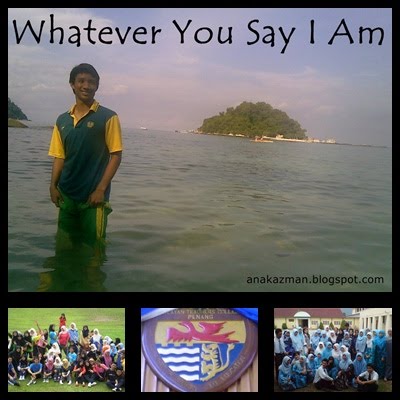So this year I decided to sign myself up for a theatre directing workshop. It's organised by the good people of Revolution Stage (Bandar Utama). It involves weekly classes that span six months, and by the end of the workshop, each participant will get a chance to direct a real play that will be open to the public. I am one of the ten people that have signed up and I hope to learn a whole bunch from this experience.
I found out about this workshop through following Revolution Stage's instagram account. They posted about it and I immediately signed myself up, since being involved in theatre is a thing I want to do more and more of. Plus, directing is something I'd like to be able to do down the line, so it makes sense for me to learn about it sooner rather than later so that I am ready if and when those opportunities arise. I am going to use this blog to journal my experience of the workshop and reflect on what I have learned so that I don't forget everything I'll be learning from this programme.
Yesterday was the first class of the six-month workshop, and I had a good experience. We introduced ourselves to each other and shared why we signed up for the workshop, and then the instructor introduced himself. His name is Khairunazwan Rodzy (I'll call him Abang Wan) and he's been in the theatre game all his undergraduate and professional life, which amounts to a couple of decades' worth of experience. He's directed everything from the smallest to the biggest of stages, and has multiple Istana Budaya play directing credits to his name. He's a low-key, chill kinda guy with a great sense of humour.
One of the first questions we had a go of answering around the circle was "What is a director? Apa itu pengarah?" We got a range of answers from "a director is a person who directs" to "a director is a leader". My answer was: a director is the main story-teller.
I listen to podcasts regularly, and one of the genres of podcasting that I've been listening to more and more these past few weeks have been interviews with screenwriters and directors. One of the main things these highly successful professionals keep going back to is story-telling and the art/craft of story-telling, so it has shaped my understanding of their jobs as being first, story-tellers. It's just that their chosen medium of story-telling is film and tv that make them directors. And that makes sense to me.
People trust the director to tell the story the best way they can, and that's why the director gets to call the shots; because of that trust other people have in them to tell the story in an effective way, by putting the camera here versus there, and getting the actor to say these things versus those things. It's all to service the story, serving the purpose of story-telling.
Directors aren't the only story-tellers on set, of course. There are the actors, whose job it is to tell the story of their characters, the art director, whose job it is to tell the story of the settings the stories take place in, et cetera. And when a script is put in front of these story-tellers, all of them read it differently, because they're different people with naturally differing points of view. If one script is put in front of ten people, then ten different ways of telling the stories come out. It's the directors job to pull all these story-tellers together and say "okay, this is the story we want to tell, and we're going to tell it like this. Everyone needs to be pointing in this same direction, to achieve this thing, this story," and a good director is able to do this well, in my opinion.
One of the activities we did that I liked demonstrated how important it is that the director is able to communicate their thoughts to their team effectively. Each of the ten participants had to draw a picture depicting a story that was written by somebody else. Then one by one, we went to the front of the class and get the other participants to draw exactly what we drew on our piece of paper just by using the spoken word. We weren't allowed to use gestures or show our picture to the rest of the class.
It was a nice activity that showed to me how important it is for the director to be able to convey both the big picture and the small picture to their team. If all a director ever talks about is one of them, then people wouldn't be able to carry out the task quite as well. It's when everyone on the team is on the same page about what big picture they're drawing and what smaller pictures they're focussing on at any one time are they able to craft what the director intended all along. Directors really have to be mad-skilled communicators to be able to do their jobs well, in my opinion.
I'm looking forward to the next class and discovering what we'll be learning in it. I'm also looking forward to bringing snacks (because a three-hour workshop does work up an appetite) to share with the rest of the class.
Here's to communicating clearly.

No comments:
Post a Comment